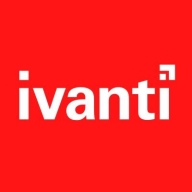

Microsoft Intune and Ivanti Neurons for MDM both compete in the mobile device management category. Ivanti Neurons for MDM might have the upper hand in BYOD scenarios and policy automation, while Microsoft Intune is more cost-effective when bundled with other Microsoft services.
Features: Microsoft Intune offers robust integration with the Microsoft ecosystem, seamless management, policy deployment, and cloud-based administration. It supports Azure AD co-management and features conditional access for enhanced security. Ivanti Neurons for MDM excels in BYOD scenarios, providing easy deployment and strong mobile device visibility.
Room for Improvement: Microsoft Intune could improve its reporting capabilities and support for Linux and macOS devices, along with better third-party app patching and a simplified user interface. Ivanti Neurons for MDM could enhance Windows device management and reduce policy push times.
Ease of Deployment and Customer Service: Microsoft Intune predominantly deploys in public cloud settings with some hybrid uses, ensuring straightforward integration with Microsoft services. Ivanti Neurons for MDM supports public, private, and on-premises cloud models, offering flexibility but also potential complexity. Microsoft Intune relies heavily on community and partner channels for support, while Ivanti Neurons for MDM provides more consistent technical support.
Pricing and ROI: Microsoft Intune is cost-effective when bundled with Microsoft services and benefits from larger Microsoft licensing agreements, appealing to enterprises already using Microsoft products. Ivanti Neurons for MDM may have a higher cost but offers features that justify the expense, particularly for mobile-centric deployments.
| Product | Market Share (%) |
|---|---|
| Microsoft Intune | 26.0% |
| Ivanti Neurons for MDM | 3.2% |
| Other | 70.8% |

| Company Size | Count |
|---|---|
| Small Business | 3 |
| Midsize Enterprise | 3 |
| Large Enterprise | 3 |
| Company Size | Count |
|---|---|
| Small Business | 122 |
| Midsize Enterprise | 48 |
| Large Enterprise | 160 |
Everywhere Work is here
Dealing with increasing demand for devices, applications and platforms?
Ivanti Neurons for MDM is your single solution to manage iOS, iPadOS, Android, macOS, ChromeOS and Windows.
Cloud‑based device management and security
Secure and manage endpoints running iOS, iPadOS, Android, macOS, ChromeOS and Windows.
Simple onboarding and provisioning process
Quickly and easily onboard devices and provision them over the air with all the apps, settings and security configurations they need.
Seamless, productive user experience
Deliver a delightful, native user experience across any device and OS while improving productivity.
Reduce the complexity and cost of endpoint management
Manage and protect any iOS, iPadOS, Android, macOS, ChromeOS, Windows and VR/XR device, from a single cloud-based solution.
Manage devices everywhere business happens
Know the devices your supply chain workers rely on are updated and in good operating condition, ready for the day’s business.
Microsoft Intune is a cloud-based service designed for device management, security, and compliance. It supports automation and facilitates endpoint management for Windows, iOS, and Android devices, ensuring data protection and efficient policy enforcement.
Microsoft Intune offers seamless integration with tools like Windows Autopilot to automate device setup and deployment. Integrated with Azure Active Directory, it enhances policy management while providing robust reporting and analytics tools for compliance tracking. Despite its intuitive interface aimed at simplifying navigation and device security management, there are challenges such as compatibility issues with Linux and Mac, limited policy support for Android, and demands for better third-party integration. It's widely used for both corporate-owned devices and BYOD scenarios in dynamic IT environments.
What are the key features of Microsoft Intune?In industries such as finance and healthcare, Microsoft Intune is implemented to ensure data protection and compliance with regulatory standards. Manufacturing sectors utilize Intune for managing a distributed workforce across global locations, while educational institutions employ it to secure and manage devices in learning environments supporting both students and faculty.
We monitor all Unified Endpoint Management (UEM) reviews to prevent fraudulent reviews and keep review quality high. We do not post reviews by company employees or direct competitors. We validate each review for authenticity via cross-reference with LinkedIn, and personal follow-up with the reviewer when necessary.